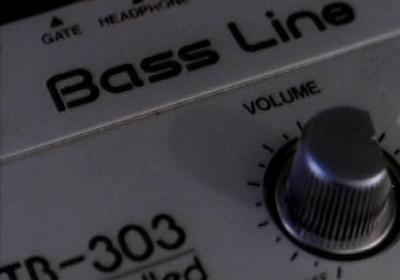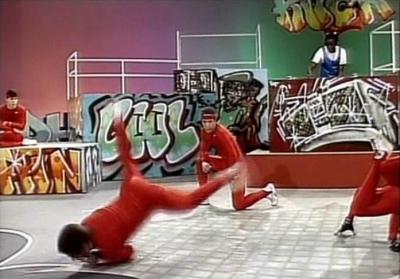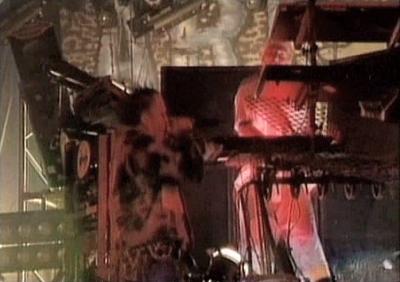Modulations
Surface skimming look at electronic music in general. Interesting but too wide ranging to feel complete.

Depending on your particular viewpoint electronic music is a source of vastly varying sounds and delights or its the hellish offspring of a crazed ZX-80 and a modem establishing a connection. With a TR-303. If you're of the latter school of thought this documentary will have little to no interest for you. Graduates of the first cogitation university may want to give this a further look.
Modulations is a fast moving, at times dizzying retrospective of the varied aspects and genres making up what can be loosely bundled into the electronica basket. It's only failing of note is to cast its net too wide and too shallow to be regarded as anything truly substantial. What stops that becoming a showstopper is its sense of urgency and pacing that means it's a truly entertaining 75 minutes.
A beginning is a very delicate time. Know then that it was Bob Moog who created the Moog synthesiser and he saw that it was good. A brief chat establishes that there's a huge variety of crazy ol' sounds to be had from these newfangled instruments.

The groundwork established Iara Lee takes a roughly chronological approach to the progression of the sound, albeit with gaps and jumps. From disco to hiphop, Chicago house to drum and base, jungle to techno, progressive house to, well the hundred or so other sub-genres of house, Lee takes a fairly scattergun approach to the subject matter. What it lacks in tightly ordered structure it gains with a kind of fluidity in the storytelling that works better as an entertaining recap for those with some degree of familiarity with the source material than for anyone wanting a comprehensive back story.
It's occasionally frustrating. The brief seems to have been to cover as broad a base as possible. It could perhaps have done with a little more depth in certain areas that have had huge, long lasting influences over the decades such as the Chicago house scene (itself an evolution of disco but the focus is generally on the more contemporary scenes) are comparatively skimmed through while a fairly substantial percentage is spent on 'noise artists' which (apologies to any Merzbow fans out there, should such a beast exist) are of highly limited interest to the public at large and can arguably be discounted as influential.
While we're picking flaws it's also a little light on star power. Artists like Afrika Baambataa are shown in action but few are interviewed, largely favouring their producers and the occasional famous eejit like the truly bizarre and frankly irritating Genesis P-Orridge.

If you judge this purely as a documentary then it's pretty much an abject failure. There's more to recommend to it than that however. It blends visuals and sounds with the factual content in a very MTV friendly way which would be annoying in a documentary on, say the Holocaust but it fits well with this subject manner.
It's an entertaining little piece of work for those with a love of the music (or a fair chunk of the spectrum presented here) as long as they have a decent grasp of the history already. There are a few gaps you have to fill in by yourself, a few cracks to be papered over. Given the slender running time there is no way on God's green earth that it could possibly give any real depth of study to ever one of the many sub-genres it touches on. It's a retrospective rather than an analysis, a Queen's speech rather than a session of Parliament.
It seems curmudgeonly to pillory Modulations for being something that it couldn't possibly be, whether it was intending to be or not. It's an enjoyable way to spend an hour and a quarter but don't expect it to replace more in depth sources of history like Last Night A DJ Saved My Life.
Were I in the business of passing quantifiable judgements, I'd award this 4/5 TippyMarks.
Carl Cox (Himself)
Derrick May (Himself)
Moby (Himself)
Robert Moog (Himself)
Genesis P-Orridge (Himself)
Karlheinz Stockhausen (Himself)
Danny Tenaglia (Himself)